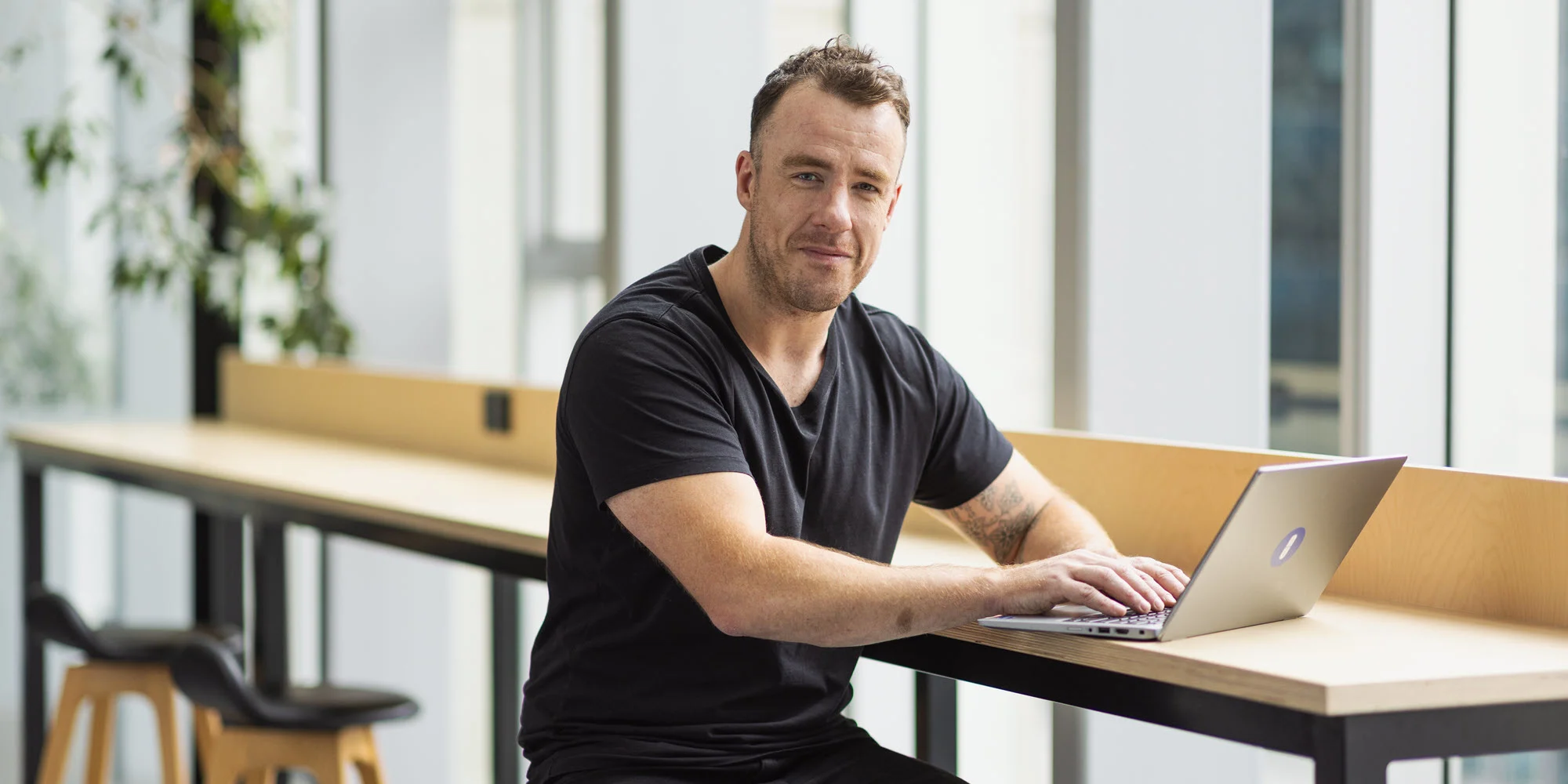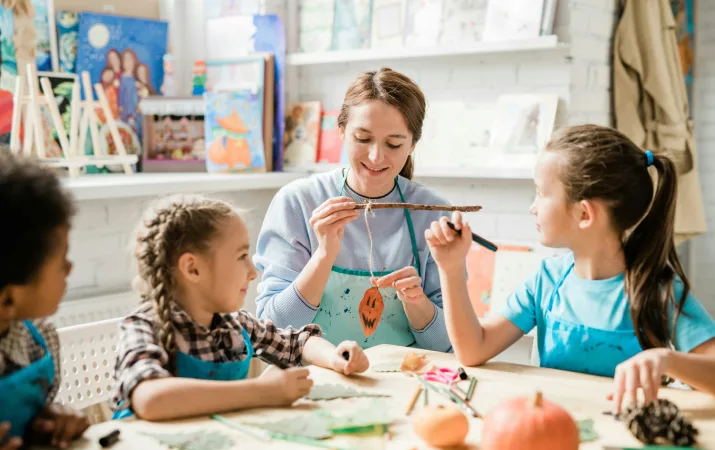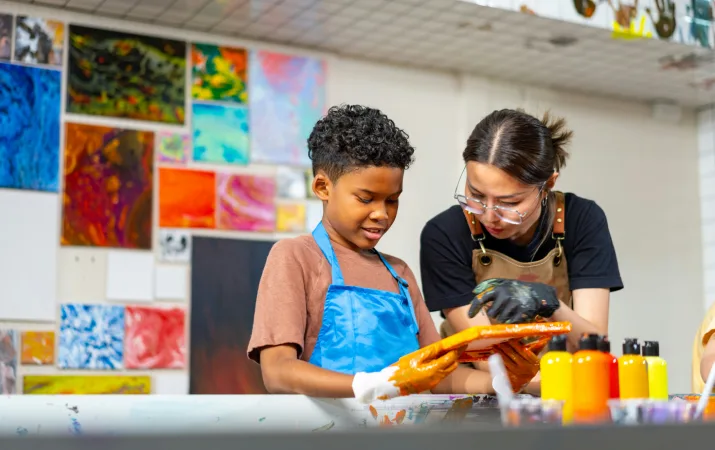How to become a kindergarten teacher
Want to help 3- and 4-year-olds develop their learning, physical and social skills? Become a kindergarten teacher. Here’s how.
Begin your career in kindergarten teaching
Kindergarten teaching is a booming sector with a wealth of future job opportunities. Between 2021–2026, demand for teachers is expected to grow a whopping 21.6%, equivalent to an additional 10,600 jobs nationwide.
Part of this expansion can be credited to the Victorian government’s $5 billion investment into providing free 3-year-old kinder from 2023, as well as New South Wales’ Start Strong for Community Preschools program.
Here’s how you can become a kindergarten teacher (a.k.a. early childhood teacher) in Australia.
Complete a bachelor degree in early childhood education. Should you wish to do this online, you could consider one of these education degrees.
Try an undergraduate certificate or diploma for a taste of the field before signing up for a longer-term course, both of which could help you gain access into a degree. Alternatively, go even less-committal with a short course or single subject.
Take up a Master of Teaching (Early Childhood Education) instead. As always, you can dip your toe in with a graduate certificate or graduate diploma. See our full range of online postgraduate kindergarten teacher courses here.
Once you graduate, register with your local teaching regulatory authority.
See how a Master of Education could help you move into management, innovation or policy-related roles later in your career.
What is a kindergarten teacher?
We get the word ‘kindergarten’ from German, which translates into ‘garden of children’, an allegory for what happens to children when they attend one—they grow, like plants, when provided with the right environment and caring gardener…a kindergarten teacher!
What does a kindergarten teacher do?
Unlike a teacher of older students, a kindergarten teacher is so much more than a conduit of knowledge. For children aged three and four, their teacher serves as social guide, role model and emotional support as well.
Duties and tasks
Developing activities to promote creativity, interest in learning, physical skills, social skills and self-confidence
Documenting observations of children’s behaviour and development
Implementing a planned program, considering individual and group needs
Building relationships with children, families, other educators and health and wellbeing professionals
Listening to each individual and interpreting words and actions to determine their needs
Promoting awareness and appreciation of multicultural diversity • Assisting children with toileting and personal hygiene
Attending to hurt, distressed or sick children
Must-have skills for kindergarten teachers
Child development knowledge
Child care knowledge
Passion
Patience
Creativity
Flexibility
High energy/enthusiasm
Organisation and planning
Communication
Respect and collaboration
A kindergarten teacher's salary
In Australia, kindergarten teachers earn, on average, between $70,000/year to $90,000/year, according to Seek. This range reflects level of experience, with salaries increasing the longer you’ve been a teacher.
You might be interested to know that senior kindergarten teachers in Victoria could earn as much as $116,906 by 2024, thanks to the Victorian Early Childhood Teachers and Educators Agreement set in 2020.
Industry bodies
Discover related degrees
Undergraduate Certificate in Teaching Education Studies
UndergraduateCUR-HTE-CTF
Work towards your future in early childhood teaching
Study 4 core subjects in teaching children—and get entry and credit in Curtin’s Bachelor Degree. Topics include language, literacy, and curriculum. Start thinking about your career as a professional early childhood or primary educator.
- Study method
- 100% online
- Duration
- 6 months full time or part time equivalent
- Entry requirements
- No ATAR required. Start with a subject.
Bachelor of Education (Early Childhood Education)
UndergraduateCUR-ECE-DEG
Comprehensive pre-service teaching preparation
Enter the valued profession of early childhood teaching and child care. Study core subjects, professional studies and electives to be qualified to teach children aged 0-8 years in early learning centres and in junior school settings.
- Study method
- Online & on-campus
- Duration
- 4 years full time or part time equivalent
- Entry requirements
- No ATAR required. Start with a subject.
Master of Teaching (Early Childhood and Primary)
PostgraduateACU-TEC-MAS
Bring your love of learning to the classroom
Focus on creating a great environment to support childhood learning. Become a passionate advocate for the rights of children. Explore the ways that you can help children to build knowledge, skills and positive attitudes.
- Study method
- Online & on-campus
- Duration
- 2 years full time or part time equivalent
Bachelor of Education (Early Childhood/Primary)
UndergraduateSCU-ECP-DEG
Double your options to work with young learners
From play to personal development, subjects in this degree prepare you to teach young and school aged children. Study the fundamentals of literacy and numeracy. Delve into science and art. Professional placements help you put theory into practice.
- Study method
- Online & on-campus
- Duration
- 4 years full time or part time equivalent
Discover related subjects
Child Development for Educators
UndergraduateCUR-EDC135
- Study method
- 100% online
- Entry requirements
- No ATAR required. Start with a subject.
- Start dates
- Starts 2 Mar 2026, 31 Aug 2026
Enrolments open until 5 Mar
Educators Inquiring About the World
UndergraduateCUR-EDC175
- Study method
- 100% online
- Start dates
- Starts 2 Mar 2026, 31 Aug 2026
Enrolments open until 5 Mar
UndergraduateCUR-EDC153
- Study method
- 100% online
- Start dates
- Starts 2 Mar 2026, 31 Aug 2026
Enrolments open until 5 Mar
UndergraduateCUR-EDUC1040
- Study method
- 100% online
- Start dates
- Starts 1 Jun 2026, 30 Nov 2026
Need help making study choices for your career?

Need help making study choices for your career?
Our student advisors will turn your aspirations into a clear study path.
They'll help you with:
Choosing and enrolling in the right course for your desired career, including pathway options.
Mapping a study plan that allows you to balance work and home commitments.
Understanding eligibility for funding, including HECS-HELP loans.
Get unbiased advice at no cost today.
Looking for other ways to start the conversation? Contact us
Step up your career with these resources

How long is an early childhood education course?
Joshua Paleologou, our student advisor specialising in education and teaching courses, shines a light on just how long you need to study to work in early childhood education. Over to you, Joshua.

Early childhood teaching scholarships in Australia
Scholarships and financial support could help you pursue your dreams in early childhood education. Here's what you need to know about the government and university programs available to you in 2026.

Early childhood teacher registration in Australia
Taking the next step towards becoming an early childhood teacher can feel big, but you don’t have to do it alone. Here we explain how registration works in each state, and what support is available to you as a student.

Can early childhood educators teach in primary schools?
We asked Joshua Paleologou, our student advisor specialising in education and teaching courses, whether you can teach in both a primary school setting and a daycare setting once you’re qualified.